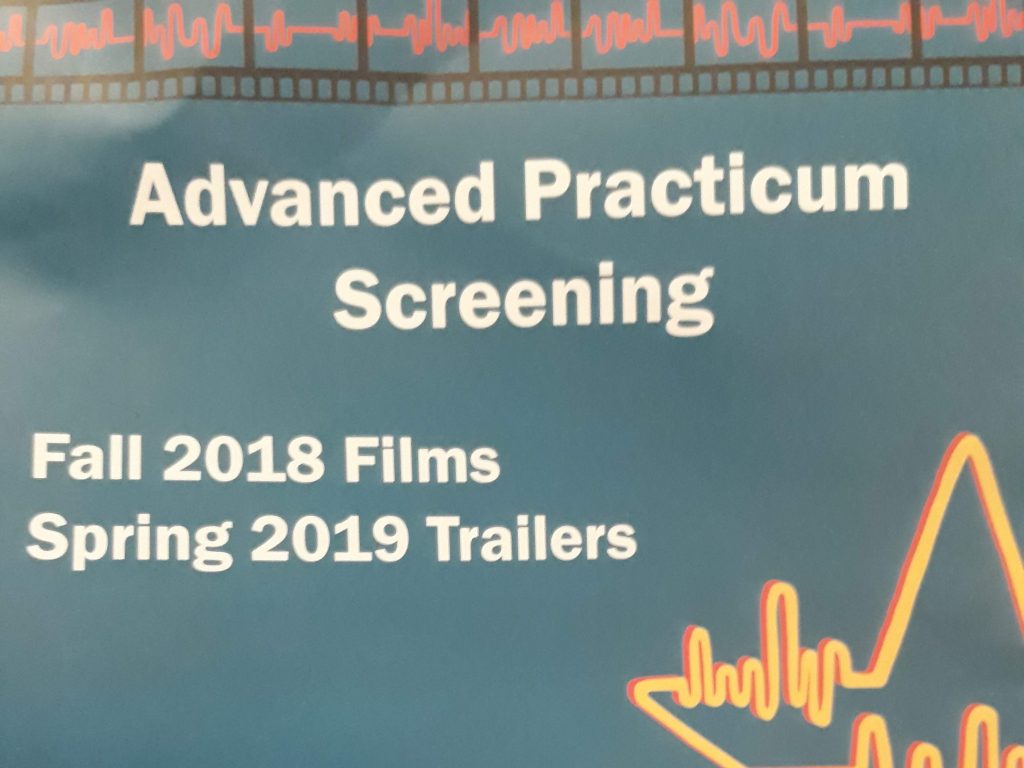
Getting Project Feedback
The last week of the semester meant the final and work-in-progress screenings for a lot of people. The graduate students had both: final screenings for project one and work-in-progress screenings for project two. With work-in-progress screenings, you are sharing your work for the purpose of getting feedback and critique, and that is always a vulnerable and sometimes difficult experience. But there are ways to make it a little less painful.

For our feedback sessions, the graduate faculty used a four-step process geared towards making sure we, the artists, were comfortable and felt empowered.
The first step, after the screening, was the faculty telling us what stood out to them, what was memorable, what they liked. It really helped in learning what works in a film. A lot of the time when work is getting critiqued, the focus is on what can be fixed, so having a moment to dwell on what’s right is really helpful.
The second step in the process were the artists asking questions to the faculty. Chances are that you know what’s wrong with your project more so than most people, so getting the chance to ask what the faculty think about certain choices you’ve made or about the themes, story elements, and visualization helps you become a better artist.
Next up, the faculty asks you questions about choices you’ve made or things that aren’t quite clear to them. This helps because there will be things you’ll miss in your film or people may be interpreting differently from how you intended. So you get a fresh pair of eyes showing you things you hadn’t noticed.
Finally, the faculty shares their opinions about your work. What’s interesting about this is that they tell you that they have an opinion or suggestion about a certain thing, then ask if you would like to hear it. Then it’s up to the artist to decide whether they want the feedback or not.
Me and a lot of my classmates really appreciated this process because it really felt like it was geared towards helping us make our films better rather than telling us what’s wrong with them. It’s an enriching experience that ultimately leads to us feeling better about our abilities as filmmakers and what motivates us to keep making art.
